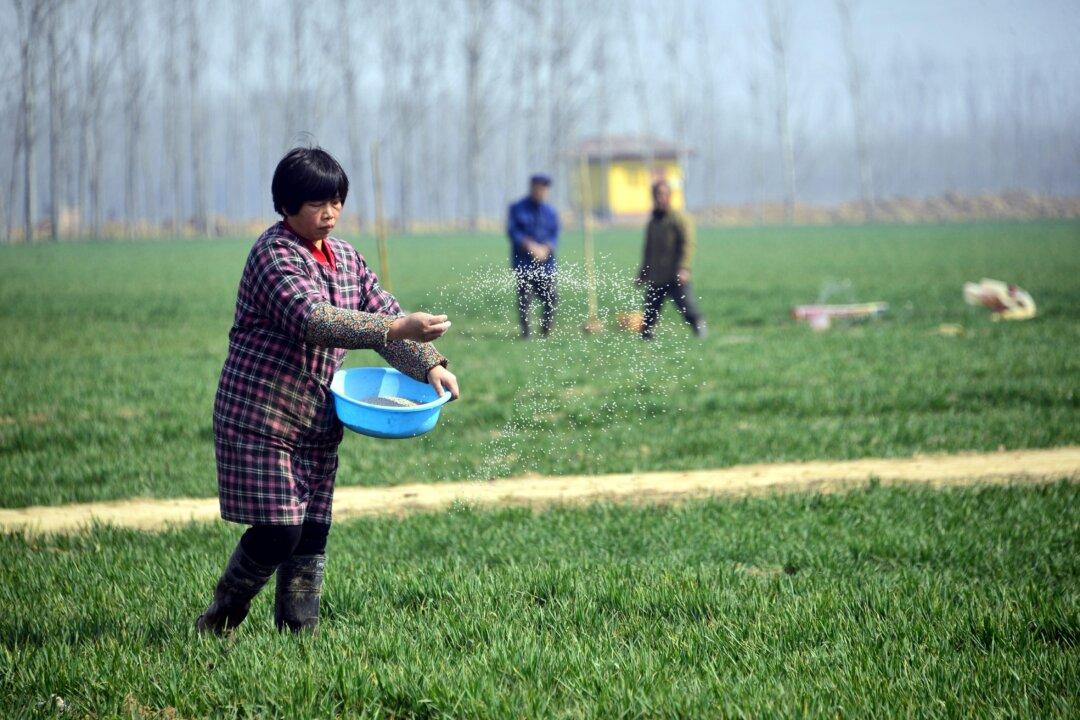The Chinese Communist Party (CCP) abruptly abandoned its zero-COVID policies in December last year. Residents are saying the sudden changes were not preceded by adequate warning or preparation and have put a burden on the Chinese medical system and created difficulties for people.
Major cities, including China’s capital Beijing, experienced an immediate outbreak after the opening up, and hospitals became overwhelmed by patients. People complain of a shortage of medicines in local pharmacies. Deaths have been surging in cities, and crematories are reportedly working around the clock.
Little has been reported on the pandemic situation in China’s rural areas, where medical resources are scarce and the population is scattered over a large area.
Farmers around Wuhan, the provincial capital of Hubei Province, are being infected by COVID, according to Mr. Wang (pseudonym), a farmer from Wuhan, who spoke with the Chinese language edition of The Epoch Times on Jan. 3.
“Almost every family has COVID patients,” Wang said, adding that the elderly are among the most vulnerable.
“They are physically weak and have underlying diseases. Once they are infected [by COVID], they are bound to die,” Wang said.
Wang told The Epoch Times that the crematory in the county has been very busy burning bodies.
He blasted the Chinese regime for the abrupt relaxing of the COVID containment measures.
“The timing [of the opening up] is wrong!” Wang said, “It’s too late.”
The changes to the zero-COVID policy came in early December when it was winter. The cold temperatures plus the outbreak of the pandemic resulted in more deaths, according to Wang.
He blamed the authorities for lacking even the minimum preparations before the opening up.
“There is no medicine, none whatsoever. We can’t even get a [COVID-19] testing kit,” Wang said angrily. He added that farmers usually stay home to recover when they fall ill because they can’t afford the medical expenses due to their low income.
The communist regime uses its household registration system [“hukou” in Chinese] to limit the movements of the rural residents and minimize their access to state welfare, including medicare care, superannuation, and education. Regarding the Medicare system, rural residents have to join what is called the New Rural Cooperative Medical Scheme (NCMS), for which local authorities have different reimbursement standards.
Lack of Medicine: Doctors
Nearly half of the residents of Harbin, the capital of Heilongjiang Province, live in rural areas. The Epoch Times reached out on Jan. 4 to doctors in two primary clinics in the city, who talked about the difficulties and challenges they face.
The Epoch Times doesn’t give the names of the doctors and clinics in the article for their safety.
A doctor at the township hospital in the northern part of Harbin told The Epoch Times that they currently face two major issues: limited medicines and a limited medical insurance cap.
He said that they currently don’t have any inpatients because the hospital doesn’t have medicines to treat COVID patients.
“There are no beds available in the county hospital because there are so many patients there,” the doctor told The Epoch Times.
The doctor believes that township hospitals or health centers throughout the country, which have to refer their patients to secondary hospitals, face a similar situation.
The Chinese regime categorizes hospitals into three tiers: primary, secondary, and tertiary, which are further divided into three subcategories. The primary hospitals or clinics are set up in towns and villages in rural areas and subdistricts in the cities and get the minimum resources, including human resources, financial support, and medical resources. The tertiary hospitals are usually in cities and are allocated huge government resources and offered policies to charge higher fees.
The doctor said that they wanted to help relieve the pressure of the county hospital. “But we only have oral medication for colds, not for pneumonia or COVID. With no proper medicines, we can do nothing,” he said.
A doctor from Bin County in Harbin told The Epoch Times that they can only treat patients with colds and coughs. They have to refer senior patients and patients with severe symptoms to secondary hospitals in the county for treatment.
“The county hospital refers the patients back to us for recovery. We have treated 13 patients in the past four days, most of whom are over 60 years old and are positive for COVID,” the doctor from Bin County said, adding that most of the medical staffers in the hospital tested positive for COVID and have to continue to work, as they don’t have any backup doctors.





